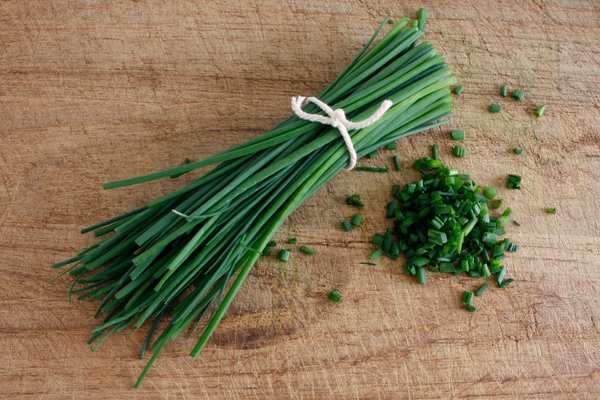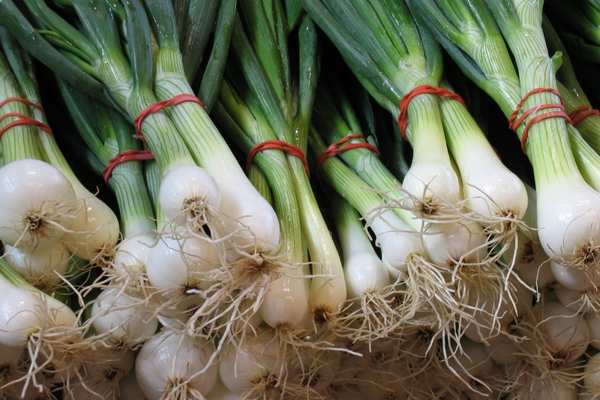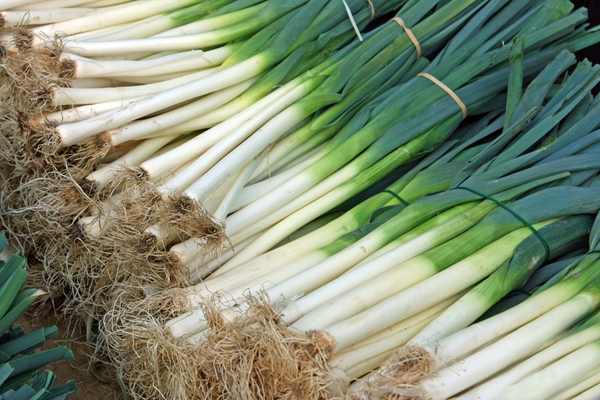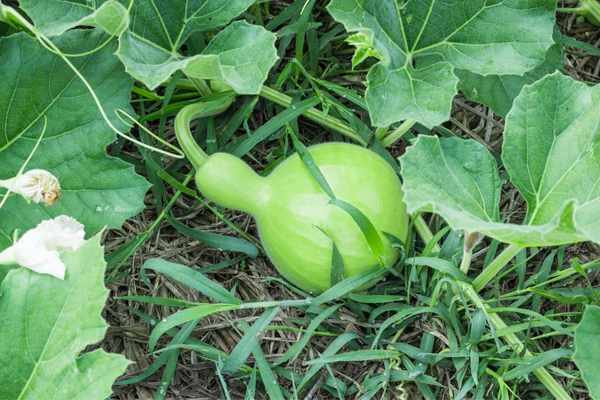Onion is one of the most humble staples all across the world. It has found its way into every kitchen around the globe and imparts a delicious savory flavor to a lot of dishes.
Often mixed with peppers, garlic, and tomatoes, onions create sensational flavors taking the everyday meals to a next level. Besides that, they are also added to the delicious toppings on steaks, pizzas, burgers, etc.
Apart from its culinary wonders, onions work well for polishing silverware, cleaning pots and grills, absorbing smells, etc. They are a great bug repellant when rubbed onto the skin. Caution: it might repel people too!
Onions are grown all year round. There are very less chances that grocery stores would run out of their supply. But what if they do so? What if you can’t access onions in the market? Or what if your doctor has asked you to avoid them? Well, we have a solution to that as well.
This article brings you the finest alternatives for onions. We’ve carefully picked these options so that you not only get the taste but equal nutrition as well. So, let’s get to it!
What are Onions?
The scientific name for Onion is Allium cepa. It is a herbaceous biennial plant usually grown for its edible bulb. It is native to southwestern Asia but is grown almost all around the world, preferably in temperate zones.
This root vegetable, although low in nutrients, is often linked with a variety of health-related benefits. It is naturally high in antioxidants and sulfur-containing compounds which are said to have the following beneficial effects;
- Improved bone health
- Low blood sugar levels
- Reduced risk of cancer
However, these are just the reported results of some preliminary studies and further research evidence is still required to validate these advantages.
9 Potential Substitutes For Onions
Here are some of the easy alternatives that you can use in place of onions and expect almost the same taste and nutrition!
#1 Chives

Long green leaves and a faint onion flavor characterize the herb chives. They have edible flowers and leaves and are related to both onions and garlic.
Chives can be found in soups, salads, omelets, potatoes, fish, and fish, and their flowers can be used to decorate food. It would be very effective to add a few handfuls of chopped chives when cooking if you want to give your dishes a complex flavor without using onions.
For every tablespoon of finely chopped onion, use 3 tablespoons of chives. To preserve the onion aroma as much as possible, avoid cooking them. Just sprinkle some chopped raw chives over your food or use them as a salad garnish.
Chives are frequently added to sour cream or included in more elaborate meals. Note, that the flavor can almost resemble garlic if you use a lot of them. However, they are generally mild when used in modest amounts.
#2 Scallions / Green Onions

Scallions are a milder variety of onions. They are also referred to as spring onions or green onions. These onions come in the form of green leaves and white bulbs, which you may eat raw or cooked. The leaves are both onion- and grass-flavored, whilst the bulb has a slight onion flavor.
If you use green tops, scallions are a fantastic low FODMAP choice. Compared to conventional onions, they taste milder and fresher, but they work surprisingly well everywhere. They can also be added right before serving in a finely diced form. Use 3 tablespoons of chopped scallions for 1 medium onion, but only cook them for a short time because they burn rapidly.
Fresh scallions can be cooked in stir-fries, salads, soups, and other dishes. Undoubtedly, the flavor will be more tangy and fresh. Be aware that these are weaker and typically have thicker layers than conventional onions, so keep in mind to not even throw any of them away.
Scallions can be a very good alternative to onions, provided that neither you nor anybody else for whom you are cooking meals is allergic to this member of the Allium genus.
#3 Leeks

Aren’t leeks almost like onions? They are connected.
Leeks and onions both belong to the Allium genus. This explains why they have some of the same internal characteristics, e.g. layered structures, and tastes.
Leeks are excellent for giving food the same sharp taste that onions do. The plant’s edible portion is a collection of leaf sheaths that is occasionally incorrectly referred to as a stem or stalk.
Leeks include a wide range of minerals and health-promoting substances that may enhance digestion, encourage weight loss, lessen inflammation, prevent heart disease, and fight cancer. They might also support your brain, reduce blood glucose levels, and prevent diseases.
Of course, you shouldn’t substitute leek if you have an allergy to the Allium genus. You’ll still fall ill.
#4 Fennel

Fennel is an additional onion alternative. It is, nevertheless, a taste that must be developed. It is best to avoid fennel if you often dislike the flavors of licorice or anise.
Fennel is a species of flowering plant belonging to the carrot family with the scientific name Foeniculum vulgare. It is a tough perennial herb with feathery leaves and yellow flowers. It is native to the Mediterranean coasts, but it has spread throughout much of the world, particularly on shallow soils near the sea and on riverbanks.
Fennel may surely give a rich flavor to your recipes in the absence of onions. Although, every component of the plant can be used and must not be wasted at all BUT be careful about the amount you are putting. The final flavor shouldn’t be too intense!
#5 Bottle Gourd

This unique white vegetable is also known as calabash and has a texture comparable to a melon, a cucumber, and a squash.
Bottle gourd is naturally high in water content and has a rich supply of calcium, vitamin K, and C. It lowers levels of harmful cholesterol and aids in heart health maintenance. The bottle gourd’s juice is believed to control blood pressure and stabilize blood sugar levels in diabetic people. Still, more research-based evidence is required!
We advise choosing to grate bottle gourd in place of onions. Although using chopped onions instead of bottle gourd is undoubtedly milder, the texture of the veggie can still work. It is frequently used in Indian curries and is a popular name in their cuisine.
#6 Ginger

Ginger is one of the most potent and nutritious alternatives for onions!
We advise switching out some onion for some ginger, thyme, and garlic if you can use garlic without any problems or dietary limitations. One of the simplest ways to accomplish this is to combine ginger and garlic paste in a small bowl.
Since ancient times, people have utilized ginger in both cooking and healing. It is still a well-liked home cure for sickness, stomach pain, and other medical conditions. You might also get relief from these problems by substituting onions for them!
Therefore, top your ginger-garlic paste with some fresh thyme, and pesto! You have a tasty paste to add to any recipe you prefer without having to wait or worry about the onions.
Some other substitutes For Onions
If you don’t want to replace onions with other vegetables and herbs, onion byproducts are the solution.
Confused? Keep reading.
Onion powder
Onion powder is made up of onions that have been dried and powdered. It is a seasoning and a component of various spice blends. Fresh onions and onion powder have a comparable flavor but the latter is a little stronger, though, and simultaneously adds savory and sweet flavor.
Along with the other spices in the meal, you can add this powder to several dishes, including sauces, soups, marinades, etc. Use one tablespoon of onion powder for one medium onion.
It is an excellent flavoring agent but if you have an onion allergy, avoid using it.
Onion flakes
Onion flakes are made up of chopped pieces of onions with their water content significantly removed. They can be added to various dishes like dips, dressings, sauces, stews, etc.
They can surely serve in place of onions but have a weaker flavor so you might have to keep adding flakes until you reach a desirable flavor.
For one medium onion, 3 tablespoons of onion flakes are enough!
Chinese onion
Chinese onion, as its name indicates is cultivated in China. It isn’t a byproduct of onion but is a different variety so could be a good substitute.
Its green stalks and white bulbs are edible both raw and cooked. They have a crispy texture but a mild taste. They can easily make up for the characteristic onion taste in grills or stir-fries.
3 tablespoons of Chinese onion work well for 1 tablespoon of chopped regular onion.
